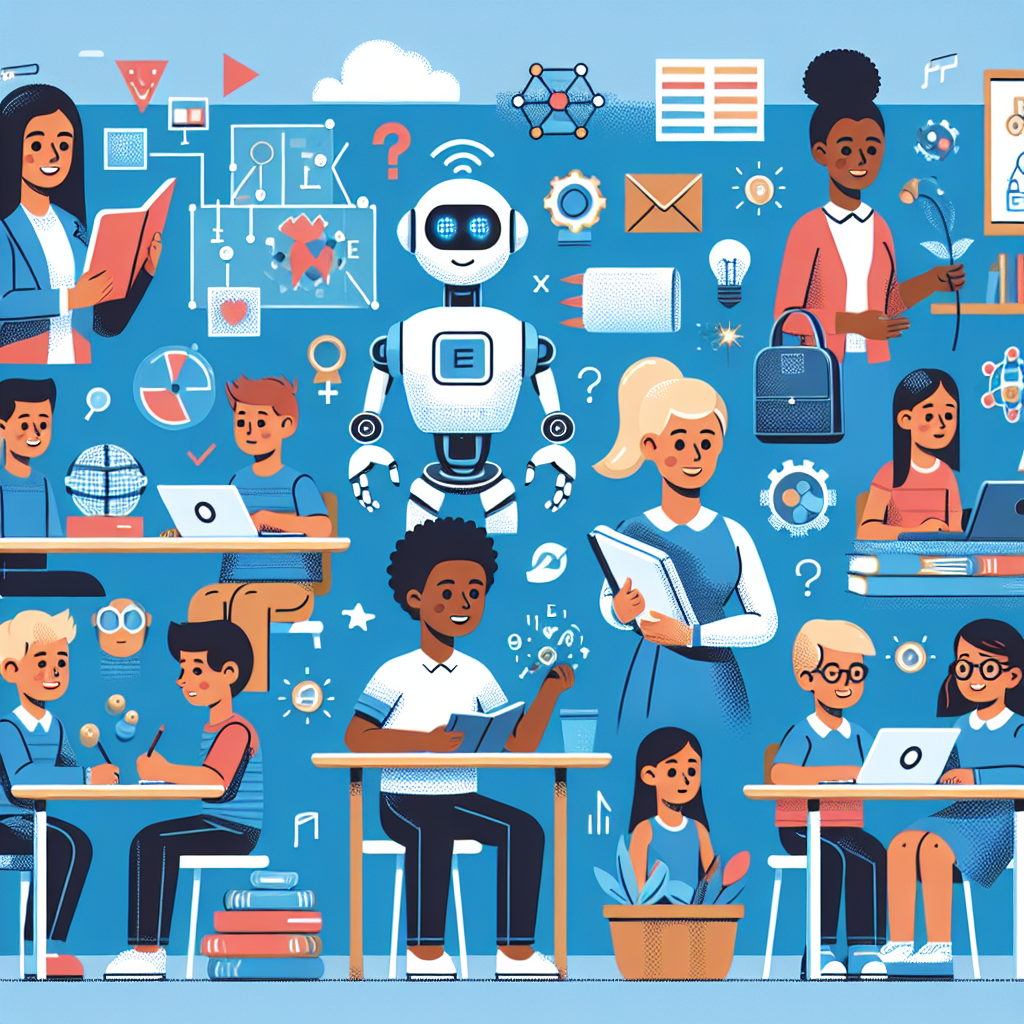The Rise of AI in K-12 Education
Artificial intelligence (AI) is revolutionizing the way we live, work, and learn. In the field of education, AI has the potential to transform the way students are taught and assessed, making learning more personalized, efficient, and engaging. In recent years, AI has been increasingly integrated into K-12 education, with schools and educators using AI-powered tools and platforms to enhance teaching and learning experiences.
AI in K-12 education encompasses a wide range of applications, from personalized learning platforms that adapt to students’ individual needs and abilities, to intelligent tutoring systems that provide real-time feedback and support. These AI-powered tools can help teachers identify students’ strengths and weaknesses, tailor instruction to meet individual learning needs, and track student progress over time.
One of the key benefits of AI in K-12 education is its ability to provide personalized learning experiences for students. By analyzing data on students’ performance, AI can identify areas where students are struggling and provide targeted support and resources to help them improve. This personalized approach to learning can help students stay engaged and motivated, leading to better academic outcomes.
Another advantage of AI in K-12 education is its ability to automate routine tasks and free up teachers’ time to focus on more meaningful interactions with students. AI-powered tools can grade assignments, provide feedback on student work, and even assist in lesson planning, allowing teachers to spend more time working one-on-one with students and addressing their individual needs.
AI can also help educators identify patterns and trends in student performance that may not be immediately apparent. By analyzing large amounts of data, AI can uncover insights that can help teachers make more informed decisions about their teaching practices and interventions. For example, AI can identify students who are at risk of falling behind academically and provide early interventions to help them get back on track.
Despite the many benefits of AI in K-12 education, there are also concerns about its potential drawbacks. Some critics worry that AI-powered tools may not always be accurate or unbiased in their assessments of students, leading to unfair outcomes. There are also concerns about the privacy and security of student data, as AI-powered tools collect and analyze vast amounts of information about students’ performance and behavior.
To address these concerns, educators and policymakers must establish clear guidelines and best practices for the use of AI in K-12 education. This includes ensuring that AI-powered tools are transparent in how they collect and use student data, and that they are regularly evaluated for accuracy and effectiveness. Educators should also receive training on how to effectively integrate AI into their teaching practices and how to interpret the insights provided by AI-powered tools.
As AI continues to advance and become more integrated into K-12 education, it is important for educators to stay informed about the latest developments in the field and to be proactive in adapting their teaching practices to take advantage of the benefits that AI can offer. By harnessing the power of AI, schools and educators can create more personalized, efficient, and engaging learning experiences for students, ultimately helping them achieve their full potential.
FAQs:
Q: How is AI being used in K-12 education?
A: AI is being used in K-12 education in a variety of ways, including personalized learning platforms, intelligent tutoring systems, and automated grading tools. These AI-powered tools help teachers identify students’ individual learning needs, provide targeted support and resources, and automate routine tasks to free up teachers’ time.
Q: What are the benefits of AI in K-12 education?
A: The benefits of AI in K-12 education include personalized learning experiences for students, more efficient teaching practices for educators, and improved academic outcomes for students. AI can help teachers identify students’ strengths and weaknesses, tailor instruction to meet individual learning needs, and track student progress over time.
Q: What are the concerns about AI in K-12 education?
A: Concerns about AI in K-12 education include the accuracy and bias of AI-powered tools, the privacy and security of student data, and the potential for AI to replace human teachers. It is important for educators and policymakers to establish clear guidelines and best practices for the use of AI in K-12 education to address these concerns.
Q: How can educators integrate AI into their teaching practices?
A: Educators can integrate AI into their teaching practices by using AI-powered tools to analyze student data, identify patterns and trends in student performance, and provide personalized support and resources to students. Educators should receive training on how to effectively use AI in their teaching practices and interpret the insights provided by AI-powered tools.

